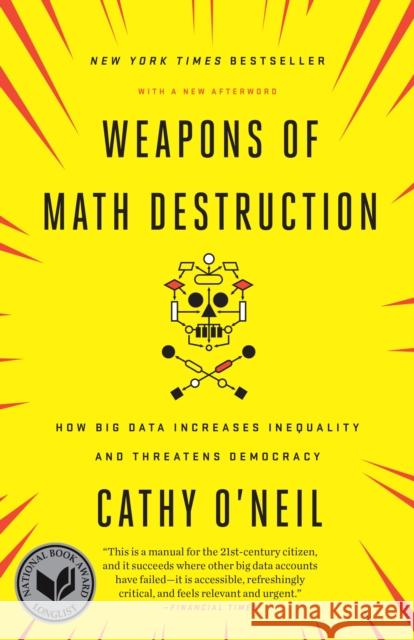Weapons of Math Destruction: How Big Data Increases Inequality and Threatens Democracy » książka
topmenu
Weapons of Math Destruction: How Big Data Increases Inequality and Threatens Democracy
ISBN-13: 9780553418835 / Angielski / Miękka / 2017 / 288 str.
Weapons of Math Destruction: How Big Data Increases Inequality and Threatens Democracy
ISBN-13: 9780553418835 / Angielski / Miękka / 2017 / 288 str.
cena 76,65
(netto: 73,00 VAT: 5%)
Najniższa cena z 30 dni: 65,42
(netto: 73,00 VAT: 5%)
Najniższa cena z 30 dni: 65,42
Termin realizacji zamówienia:
ok. 16-18 dni roboczych.
ok. 16-18 dni roboczych.
Darmowa dostawa!
Longlisted for the National Book Award
New York Times Bestseller
-- Goodreads, semi-finalist for the 2016 Goodreads Choice Awards (Science and Technology)
-- Kirkus, Best Books of 2016
-- New York Times, 100 Notable Books of 2016 (Non-Fiction)
-- The Guardian, Best Books of 2016
-- WBUR's "On Point," Best Books of 2016: Staff Picks
-- Boston Globe, Best Books of 2016, Non-Fiction











